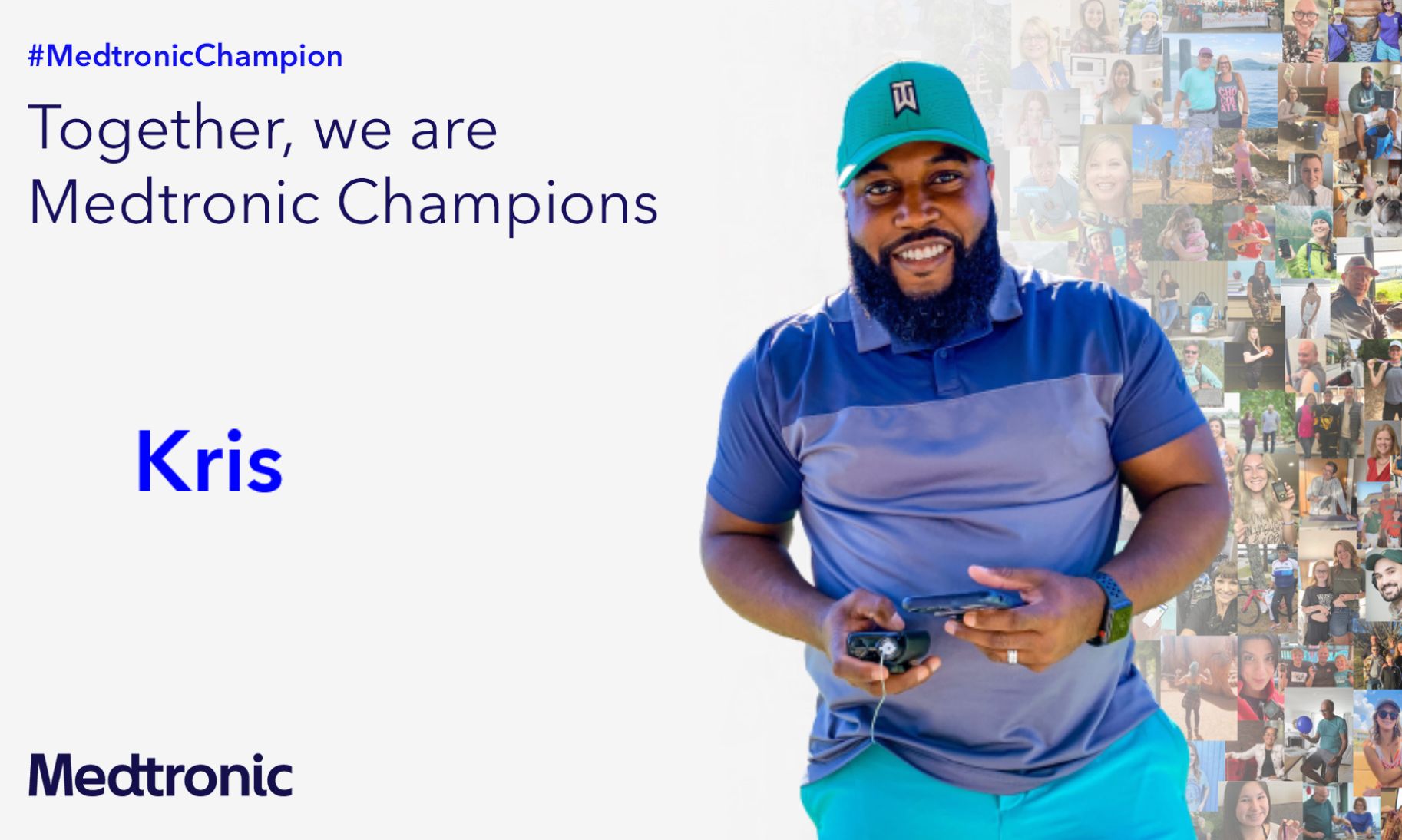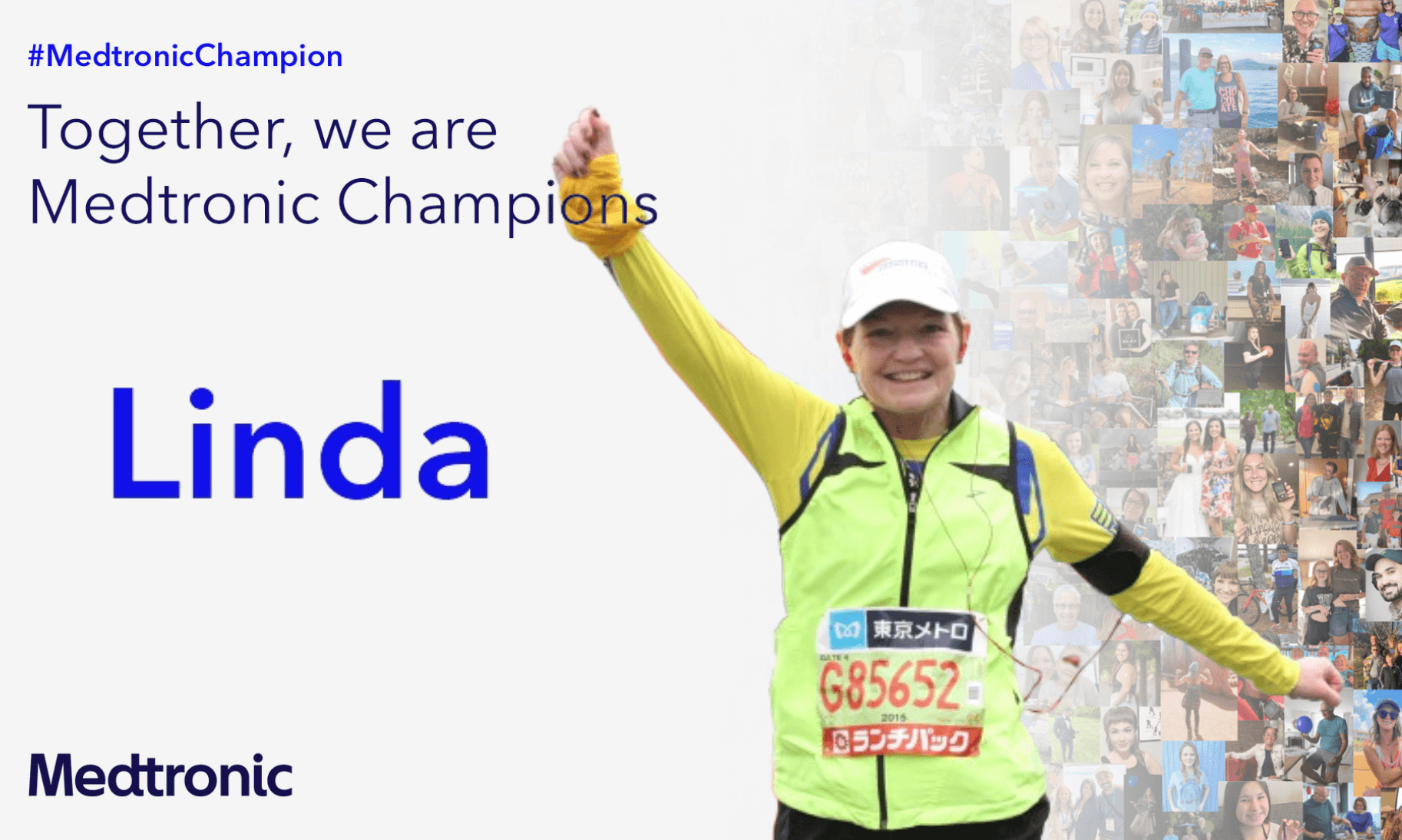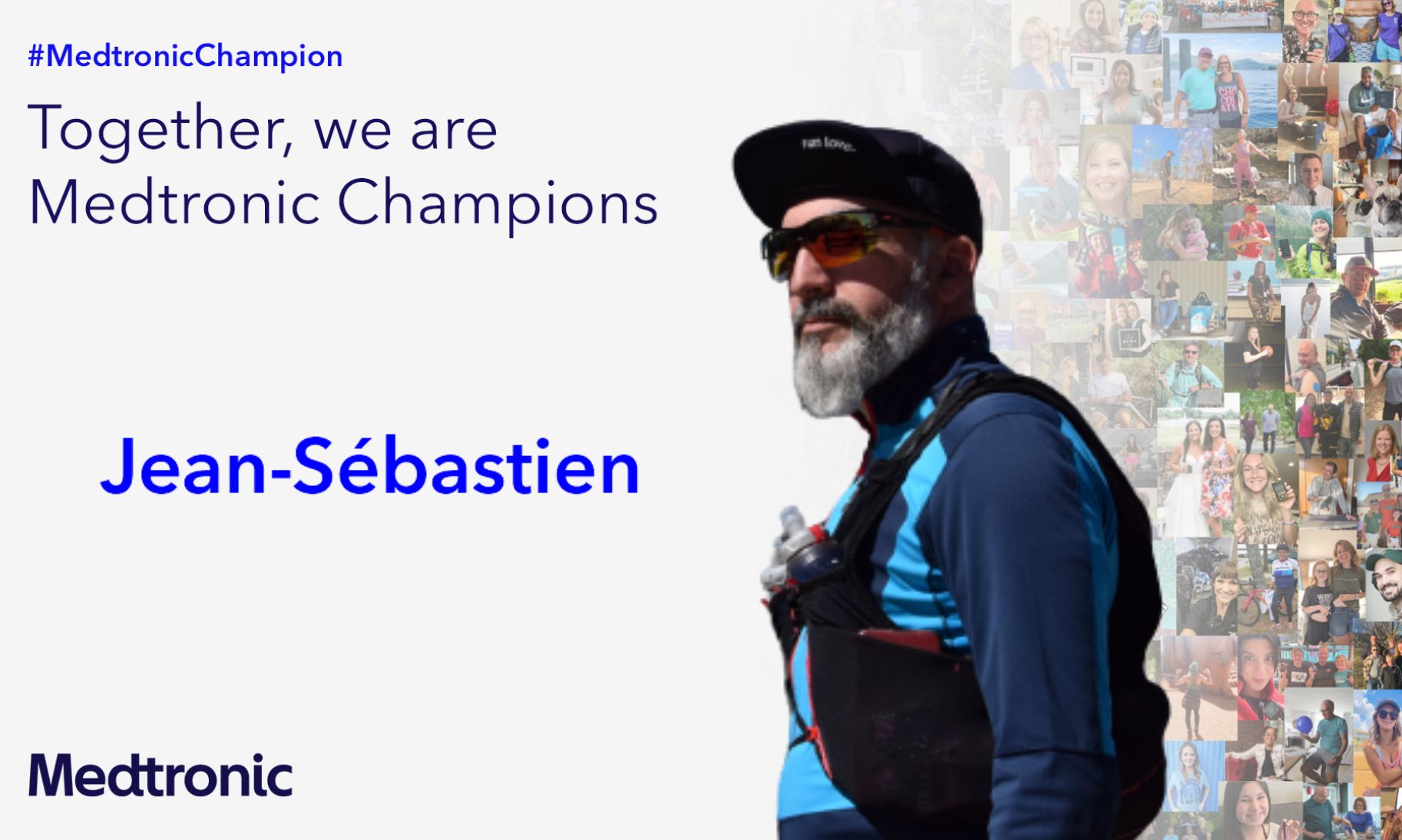Meet #MedtronicChampion Kris

From disbelief to breaking stigmas: Meet #MiniMedChampion Kris
Meet Kris Leeper, an avid foodie, traveler, and golfer, who lives with type 1 diabetes. Kris was diagnosed with type 1 when he was 26 years old. He began his diabetes therapy management journey with multiple daily injections (MDI) before learning how to use insulin pens and later making the switch to insulin pump therapy. In 2023, he started on the MiniMed™ 780G system with the Guardian™ 4 sensor. Read his story to hear about his personal experiences and advice for others on their own diabetes journeys.
Disbelief over diabetes diagnosis
I just started feeling off. I was still going to work and being active, but I just started feeling a little sluggish, slow. This continued for a couple months, but it didn’t really cause concern — I was 26 and had been really healthy up to that point! Later my wife, Tierra, and I went on vacation to New York City; we were doing a lot of walking, and I remember feeling exhausted. I went straight back to work after and felt worse. My wife convinced me to go to Urgent Care, and they ended up sending me to the ER one block away. They told me I had type 1 diabetes and that I needed insulin because my blood sugar was in the 600s. I didn’t even know what that meant.
Next thing I knew, I was in the ICU, getting insulin in an IV and a crash course in diabetes. It was a total sensory overload. This was in 2013, and while Medtronic and other companies had insulin pumps out, the doctors’ best advice at the time was to “eat less, carry around a bottle of insulin and needles, and give [myself] shots six to seven times a day.” I was in disbelief. A couple days ago, I had been walking around NYC, and two weeks before that, I was in Canada for work. It was too much to take — that kind of lifestyle just didn’t sound manageable for a young guy, recently married, with a new job and active social life. It really took me a while to learn about the disease and convince myself that this was going to be my new normal — that it’s what I had to do to survive.

What I wish I’d known
There are multiple ways to manage diabetes, and it’s totally manageable! You can live a pretty normal life with the disease and continue doing all the things you love — you just need to relearn how. At the time, the information I received from the ICU nurses and at follow-up appointments was really negative — it was very one-sided, like, “Hey, you need to eat less. You can’t do this anymore. You can’t do that anymore.” No one wants to be unable to do something due to their diagnosis! I want people to know that if you manage it well, you can do anything you want.
The biggest advancement in diabetes management
The MiniMed™ 780G system is amazing. I don’t think people fully understand what the Guardian™ 4 sensor can do to help you. It’s really changed my life in a way where I no longer think about diabetes every hour and I can make better decisions.* The other day I had a morning meeting. Usually, I’d say no to coffee and breakfast because I don’t want to have to deal with figuring out the right amount of carbs to bolus for. If I was wrong and went high, I wouldn’t feel well, or I might have to use the bathroom a lot during the meeting. It’s all just too much work and too many things to worry about. But this time, I said sure because I knew the tech in the MiniMed™ 780 and Guardian™ 4 sensor would correct my insulin amount if I messed up — it allowed me to make a decision in real time and indulge.
Sharing authentic stories with the MiniMed Champion community
It’s been really impactful to share stories in a way where it’s really authentic, and to help the broader community. There’s so much misinformation out there and problems with the healthcare system as it pertains to diabetes. I want to hear from people, have them ask me questions, and give them my real-life experience to help break the stigmas and barriers of mistruths about diabetes. I hope to be an advocate and continue to show people that, “Hey, there are ways to manage this correctly, and Medtronic is there to help you with tech advancements and lessons learned to improve lives around the world.”
“I am a MiniMed Champion because I want to ensure the next generation of type 1 diabetics never experiences the struggle I endured as a newly diagnosed patient.”
Guest Author: Medtronic employee Anna Bjorlin
As a MiniMed Champion Ambassador, Kris receives promotional items and educational material to use and share as he sees fit. Opinions expressed by an Ambassador are based on the Ambassador’s actual experience and are not necessarily the opinions of Medtronic. Individual experiences vary, and the experience other individuals have with the device could be different. Please talk to your doctor about your condition and the risks and benefits of Medtronic devices.
Reference
* Refers to SmartGuard™ feature. Individual results may vary.
Important safety information: MiniMed™ 780G system with SmartGuard™ technology with Guardian™ 4 sensor
The MiniMed™ 780G system is intended for continuous delivery of basal insulin at selectable rates, and the administration of insulin boluses at selectable amounts for the management of type 1 diabetes mellitus in persons seven years of age and older requiring insulin as well as for the continuous monitoring and trending of glucose levels in the fluid under the skin. The MiniMed™ 780G system includes SmartGuard™ technology, which can be programmed to automatically adjust insulin delivery based on the continuous glucose monitoring (CGM) sensor glucose values and can suspend delivery of insulin when the sensor glucose (SG) value falls below or is predicted to fall below predefined threshold values. The Medtronic MiniMed™ 780G system consists of the following devices: MiniMed™ 780G insulin pump, the Guardian™ 4 transmitter, the Guardian™ 4 sensor, One-press serter, the Accu-Chek™ Guide Link blood glucose meter, and the Accu-Chek™ Guide test strips. The system requires a prescription from a healthcare professional. The Guardian™ 4 sensor is intended for use with the MiniMed™ 780G system and the Guardian 4 transmitter to monitor glucose levels for the management of diabetes. The sensor is intended for single use and requires a prescription. The Guardian™ 4 sensor is indicated for up to seven days of continuous use. The Guardian™ 4 sensor is not intended to be used directly to make therapy adjustments while the MiniMed™ 780G is operating in manual mode. All therapy adjustments in manual mode should be based on measurements obtained using a blood glucose meter and not on values provided by the Guardian™ 4 sensor. The Guardian™ 4 sensor has been studied and is approved for use in patients ages 7 years and older and in the arm insertion site only. Do not use the Guardian™ 4 sensor in the abdomen or other body sites including the buttocks, due to unknown or different performance that could result in hypoglycemia or hyperglycemia.
WARNING: Do not use the SmartGuard™ feature for people who require less than 8 units or more than 250 units of total daily insulin per day. A total daily dose of at least 8 units, but no more than 250 units, is required to operate in the SmartGuard™ feature. |



